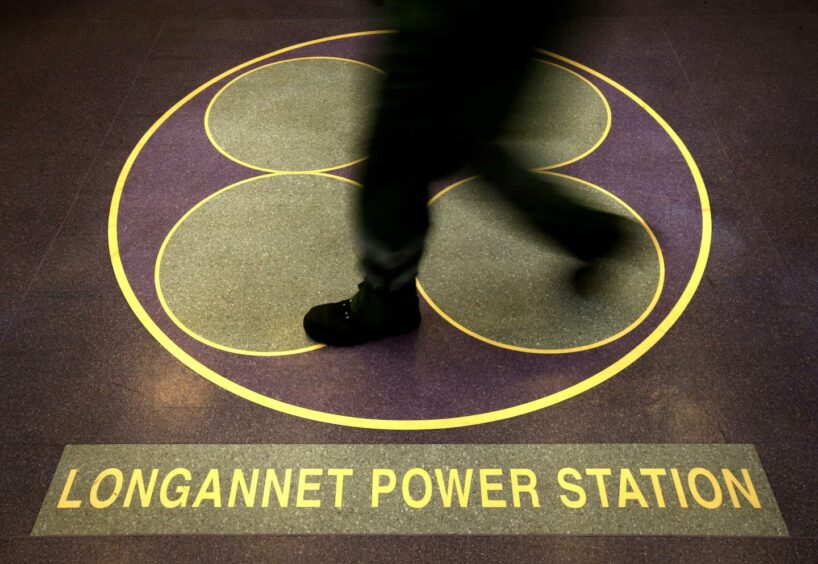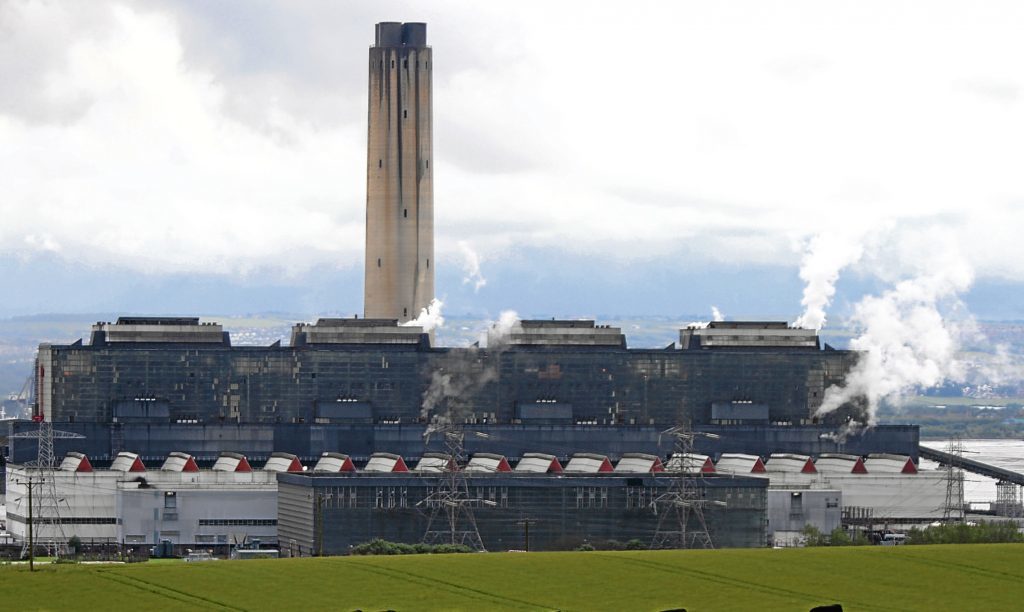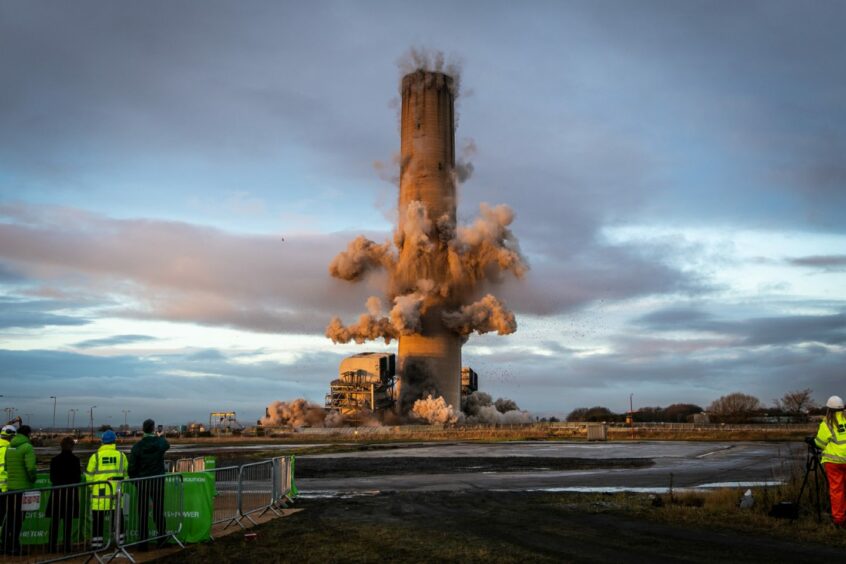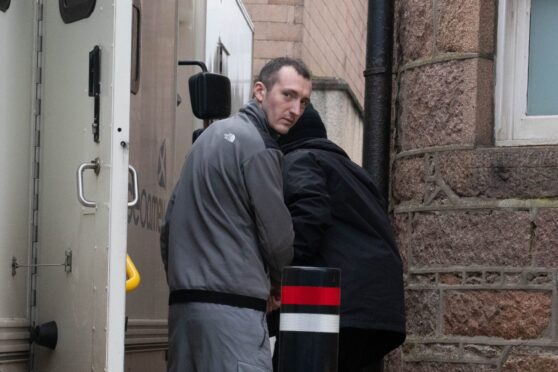The family of a Fife man who fell to his death through a severely corroded platform at Longannet power station have been told the company responsible for safety failings will be fined just £5,000.
Dedicated family man Gary Robertson – described by his wife as a “best friend” – died from his injuries after the near-30-foot drop onto concrete.
He had been working with a colleague in the area known as Coronation Street at the decommissioned site in February 2019.
The 55-year-old father and husband, who was born and raised in Cowdenbeath, fell after a metal grating panel on a pipe bridge platform gave way.
The bridge provided access between two buildings at the former coal-fired power station, which was closed in 2016.
The demolition work at the Inverkeithing site was being overseen by Brown and Mason Ltd, a firm which has since gone into administration.
It admitted it knew the railing was badly corroded and did not put in place a safe system of work.
Fine would have been £100,000
Sheriff Elizabeth McFarlane, at Kirkcaldy Sheriff Court, said the fine imposed for the organisation’s safety failings would have been one of £100,000 but she could only set the nominal amount of £5,000 because it has no assets to meet the higher figure.
The sheriff, who offered her sincerest condolences and deepest sympathies to Mr Robertson’s family for their loss, said: “Nothing I do here today can lessen the pain or compensate you for that loss.”
His family, who sat and listened to court proceedings this week, were visibly upset by the level of fine imposed.
Following sentencing, a statement was given on the family’s behalf by their lawyer, Innes Laing, of Digby Brown solicitors.
He said: “As the sheriff said, nothing could compensate for Gary’s loss but it’s still very disappointing to hear that the company does not have finances to pay the fine.
“The fine would have been £100,000 had they not been insolvent, and that would have at least been a bit closer to a reasonable sanction.
“However, there is a civil action ongoing.”
Wife lost ‘best friend’
Fiscal depute Ms Gillespie told the court paramedics were called to the scene of the tragic incident at around 2.30pm on February 6 2019.
Although initially conscious after the fall, Mr Robertson lost consciousness and went into cardiac arrest.
He was pronounced dead shortly before 4pm, despite attempts to save him.
Ms Gillespie said Mr Robertson – who had worked at Longannet for its operator for about 20 years – was married and a father of two adult children.
He was described by his wife of 33 years as a “best friend” who was dedicated to his work and who provided for his family’s future.
In early 2017, following the closure of the plant, he joined Brown and Mason Ltd as a plant operator and labourer as work started on demolition of the site.
The plant was the second largest coal-fired power station in the UK prior to its closure in 2016.
Safety failings
Ms Gillespie said a method statement and risk assessment was carried out for each job during the demolition project.
In July 2018, a document was drafted which made reference to the “removal of bridge” being done in four stages from a mobile elevated work platform.
Site owner Scottish Power’s technical team were able to review this method statement and highlighted access gantries and walkways in the Coronation Street area were “severely corroded” and in a “dangerous condition”.
A revised statement was produced and included confirmation from Brown and Mason Ltd that work to remove the pipe bridges and platforms would take place using a mobile height platform.
It was recorded all access points and stairways would be blocked off using crowd barriers.
Mason and Brown Ltd produced a final version of the method statement and risk assessment in early August 2018 but the document contained no reference to the corroded condition of the pipe bridge.
Ms Gillespie said the company management at the site, including the site manager, had inspected the area and concluded the bridge was in a severely corroded condition.
Guilty of safety failings
The court heard that on the day of the incident, Mr Robertson and his colleague accessed the bridge to start cutting cables, despite the method statement saying a mobile height platform should be used.
As far as both Mr Robertson and his colleague were aware, it was a safe working platform as they had not been advised otherwise.
Mr Robertson’s colleague had assessed some of the cabling above the bridge could not be reached and cut within the mobile height platform.

Ms Gillespie said an investigation by the Health and Safety Executive (HSE) established the metal panel and other parts of the platform flooring and support structure had been “extremely corroded”.
She said HSE also Brown and Mason Ltd had known about the platform’s poor condition and did not address it in a risk assessment or by informing employees and preventing access to it.
The company, now called CBR02 Ltd, admitted safety failings in contravention of the Health and Safety at Work Act 1974.
The firm pled guilty to failing to ensure, so far as reasonably practicable, the health, safety and welfare of employees between August 2018 and February 6 2019 by failing to make suitable and sufficient assessment of the risks they were exposed to.
In particular, they failed to adequately record and address the severely corroded condition of a pipe bridge platform located at the eastern end of the Coronation Street area of the site.
They also failed to provide suitable information and instruction as was necessary to ensure employees engaged in demolition work within this area were aware of the unsafe condition of the platform’s flooring.
They should have also used physical barriers or signs to tell staff that access to the platform from an adjoining stairway was prohibited.
The court also heard the firm went into administration in September 2020 and this process is ongoing.
Previous offence
The fiscal depute noted the company had previously offended.
In 2003, Brown and Mason Ltd was fined £40,000 after pleading guilty to failing to adequately assess risk and provide a safe system of work, which resulted in the death of an employee involved in demolition work at a Northumberland power station.
Ms Gillespie said the firm had been involved in the dismantling and demolition of more than 50 power stations and directly employed a workforce of more than 400 staff.
In their most recent full accounts posted for the year ending April 30 2018, the company recorded a turnover of £59 million with a net profit of £1 million.
Defence lawyer Peter Gray QC said the organisation has been in existence for 48 years and operates in a sector which is inherently extremely hazardous and they take health and safety extremely seriously.
He told the court it was a matter of “deep regret” Mr Robertson, a highly valued employee, lost his life in the course of his job as a result of their failings.
The lawyer stressed those failings arose as a result of an “administration oversight”.
He also highlighted the organisation’s previous offence was 19 years ago.
Sentencing comments
In her sentencing, Sheriff McFarlane said her function was to deal with the criminal prosecution of a company that failed to take steps to ensure an accident which was preventable.
The sheriff said she took into account aggravating factors such as the organisation’s previous offence, but also mitigating factors including their cooperation with the investigation and what was a good health and safety record.
She added: “Because of the state of the company’s finances, I’m only able to make a nominal fine which will be £5,000.”












